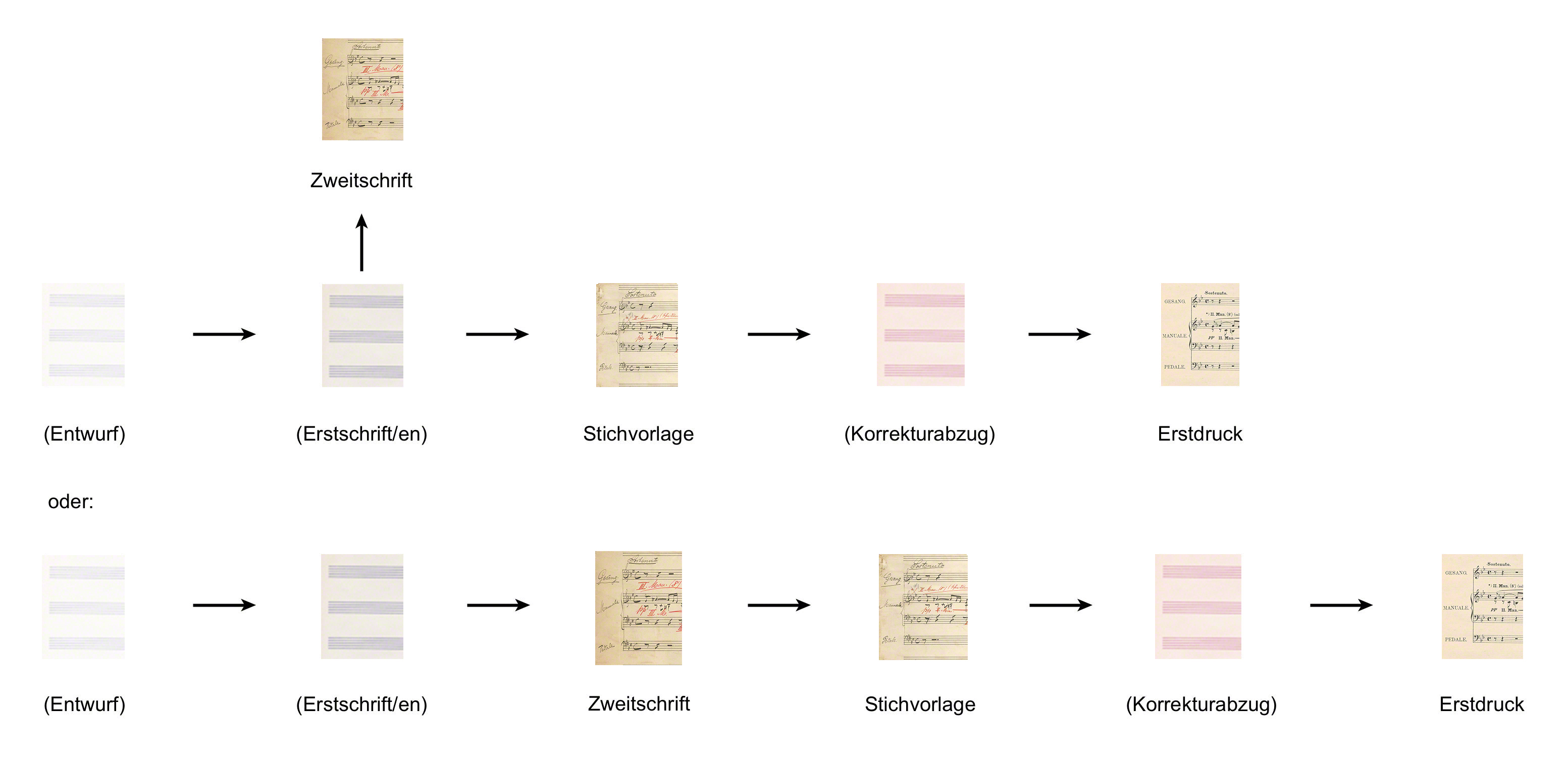Two sacred Songs WoO VII/30
for medium voice and organ
-
No. 1 Wenn in bangen, trüben Stunden
Text: Novalis
-
No. 2 Heimweh
Text: Julius Sturm
- -
- -
- -
1.
| Reger-Werkausgabe | Bd. II/7: Vokalwerke mit Orgelbegleitung und weiteren Instrumenten, S. 16–21. |
| Herausgeber | Alexander Becker, Christopher Grafschmidt, Stefan König. Unter Mitarbeit von Dennis Ried und Stefanie Steiner-Grage. |
| Verlag | Carus-Verlag, Stuttgart; Verlagsnummer: CV 52.814. |
| Erscheinungsdatum | Mai 2019. |
| Notensatz | Carus-Verlag, Stuttgart. |
| Copyright | 2019 by Carus-Verlag, Stuttgart and Max-Reger-Institut, Karlsruhe – CV 52.814. Vervielfältigungen jeglicher Art sind gesetzlich verboten. / Any unauthorized reproduction is prohibited by law. Alle Rechte vorbehalten. / All rights reserved. |
| ISMN | M-007-18850-4. |
| ISBN | 978-3-89948-318-5. |
No. 1 Wenn in bangen, trüben Stunden
Novalis: [Wenn in bangen trüben Stunden…], in:
Novalis Schriften, vol. 2, ed. by Friedrich Schlegel and Ludwig Tieck, Buchhandlung der Realschule, Berlin
unknown
Used for comparison purposes in RWA: Novalis: [Wenn in bangen trüben Stunden…], in:
id.: Die Gedichte des Novalis. (Friedrich von Hardenberg.), ed. by Franz Blei, Philipp Reclam jun., Leipzig
Copy shown in RWA: DE, Karlsruhe, Max-Reger-Institut/Elsa-Reger-Stiftung.
Note: In Erstausgabe als Nr. XIII der Geistlichen Lieder.
No. 2 Heimweh
Julius Sturm: Heimweh, in:
id.: Fromme Lieder, Brockhaus, Leipzig
unknown
Used for comparison purposes in RWA: Julius Sturm: Heimweh, in:
id.: Fromme Lieder, 2nd edition, F. A. Brockhaus, Leipzig
Copy shown in RWA: DE, Karlsruhe, Max-Reger-Institut/Elsa-Reger-Stiftung.
Note: Textvorlage vermutlich eine der zahlreichen späteren Auflagen der Erstausgabe.
1. Composition and Publication
–––––––––––––––––
Composition and publication · Early reception
2.
Translation by Elizabeth Robinson.
1. Reception
–––––––––––––––––
Composition and publication · Early reception
2.
Translation by Elizabeth Robinson.
1. Stemma

2. Quellenbewertung
Der Edition liegt als Leitquelle der Erstdruck zugrunde. Als zusätzliche Quellen wurden die Zweitschrift sowie die Stichvorlage herangezogen.
3. Sources
- Erstschrift(en)
- Vermutliche Zweitschrift, wohl für Karl Straube
- Stichvorlage
- Erstdruck
Object reference
Max Reger: Two sacred Songs WoO VII/30, in: Reger-Werkausgabe, www.reger-werkausgabe.de/mri_work_00240.html, version 3.1.1, 31st January 2025.
Information
This is an object entry from the RWA encyclopaedia. Links and references to other objects within the encyclopaedia are currently not all active. These will be successively activated.